Dogs love to eat, and Pugs are no different. We love giving our dogs whatever we’re eating, but not all human food is healthy for dogs. So, what human foods can Pugs eat?
Pugs can eat human foods such as beef, bread, corn, eggs, chicken, salmon, tuna, milk, mackerel, oatmeal, pasta, rice, yogurt, and pork. Human foods such as alcohol, chocolates, avocados, onions, macadamia nuts, grapes, and caffeine should be avoided because they’re toxic to dogs.
Knowing that Pugs love to eat, we have to keep in mind that the digestive system of a dog is different from that of a human. Some human foods are safe and nutritious for dogs, while others are unhealthy and detrimental to the health of your dog.
In this article, I will go over a list of 75 human foods your Pug can eat. I’ll also provide you with foods they can’t eat and how to prepare the foods they can eat to keep them on the safe side.
ALSO READ: How Much To Feed A Pug
Dairy Products

When used sparingly, organic dairy products are a great source of fat that can benefit the diet of an Pug. Dogs that are lactose intolerant may experience gas, bloating, vomiting, or diarrhea after consuming dairy products. Consult your vet before incorporating them into their food.
Can Pugs Eat Dairy Products?
Pugs can eat dairy products. Many dairy products, like cheese, yogurt, and milk, are healthy for your dog to consume in moderation. Your dog shouldn’t be overfed dairy products, and some of them have lactose intolerance because they are unable to digest the sugars in dairy products.
What Dairy Products Can Pugs Eat?
Pugs can eat dairy products such as cheese, cottage cheese, cow milk, vanilla ice cream, whey, yogurt, and many more. They should avoid dairy products like goat milk, butter, margarine, and others because they contain toxins that are harmful to them if ingested in large quantities.
Cheese
Pugs can eat cheese. The caveat to giving them cheese is to feed them in moderation because they’re high in fat and calories. Cottage cheese is a good option because it’s low in fat.
Cheese contains other nutritional elements like zinc, phosphorus, calcium, and vitamins A and B12 that have great nutritional benefits for your dog.
Milk
Pugs can drink milk. However, like with other dairy meals, whether you feed it to your dog depends on his lactose tolerance. Nonetheless, milk has a lot of calcium and vitamin D that are beneficial for your dog’s teeth and bones.
Milk is also high in potassium, which is good for the heart. It also contains all the essential amino acids, several vitamins and minerals, and healthful omega-3 fatty acids.
Yogurt
Pugs can eat yogurt. Yogurt is an awesome food for your dog’s digestive system due to its high calcium and protein content and potential to operate as a probiotic. Keep to plain, natural yogurt or low-fat Greek yogurt if you want to feed yogurt to your Pug.
Additionally, make sure the yogurt doesn’t include any artificial sweeteners (like xylitol) or additional sugar or fat, and just have one or two tablespoons to avoid stomach irritation.
Fruits
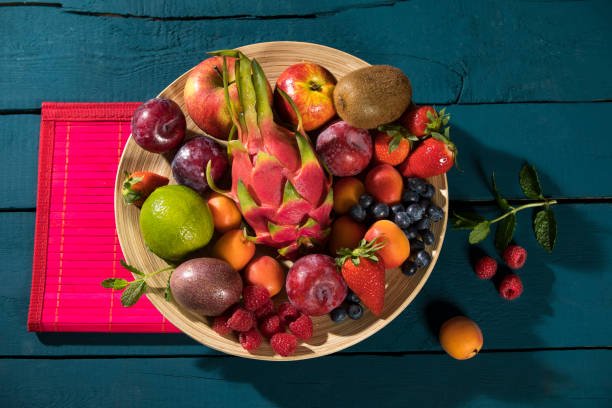
Dogs are omnivores, they don’t need fruits to meet their nutritional requirements. However, adding fresh fruits to your dog’s regular diet, with your vet’s approval and guidance, may provide them an extra dose of vitamins, minerals, and antioxidants as well as some extra source of hydration.
Can Pugs Eat Fruits?
Pugs can eat fruits. Fresh fruits are a healthy alternative to dog treats since they are full in vitamins, minerals, and antioxidants. However, they are also heavy in natural sugars and should be given in moderation, while some have seeds that are typically harmful to dogs.
What Fruits Can Pugs Eat?
Pugs can eat fruits such as apples, bananas, blackberries, blueberries, raspberries, strawberries, watermelons, oranges, mangoes, peaches, and many more. You shouldn’t feed them grapes, avocados, lemons, and the pits or seeds of most fruits because they’re poisonous to your dog.
Apples
Pugs can eat apples. They are an excellent source of fiber, calcium, phosphorus, and vitamins A and C. The vitamins are necessary for preserving strong bones and tissues. They also aid in maintaining clean teeth and fresh breath. Apples’ sweet flavor and crisp texture will appeal to your Pug.
Bananas
Pugs can eat bananas. They include vitamins B6 and C, biotin, fiber, copper, and a high potassium content to assist kidney and heart health. However, don’t overfeed them bananas due to their high sugar content, and avoid giving them the peel because your dog can have trouble digesting it.
Blackberries
Pugs can eat blackberries. They are rich in fiber, vitamins A, B, C, E, and K, as well as several beneficial antioxidants that help stop or delay cell damage. Blackberries are one of the best fruits to feed your Pug because they contain less sugar content compared to other fruits.
Blueberries
Pugs can eat blueberries. They make a great snack for dogs since they are so amazingly healthy and nourishing. They contain phytochemicals, which scientists believe can help combat cancer and heart diseases. They are a fantastic source of fiber and vitamins C and K and contain less sugar.
Coconut
Pugs can eat coconut. They contain fiber, minerals, vitamins, and antioxidants that boost your dog’s immune system. It helps prevent viruses, reduces inflammation, and can even help treat a yeast infection. Coconut oil makes your dog’s fur shiny and gives him less dry skin.
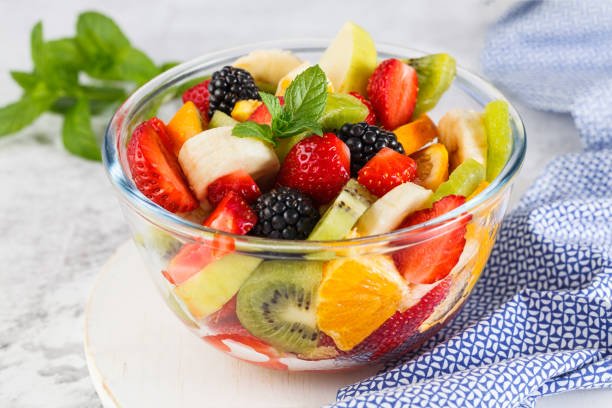
Cranberries
Pugs can eat cranberries. They are a superfood that includes fiber, manganese, and vitamins C, E, and K. Additionally, they are anti-inflammatory, prevent cancer, and strengthen the immune system. They possess antibacterial qualities that can aid in preventing and treating urinary tract infections.
Cucumbers
Pugs can eat cucumbers. They are rich in vitamins B1, C, and K and include calcium, potassium, copper, magnesium, and biotin. They strengthen bones while also enhancing joints and connective tissue. They can also aid in freshening your dog’s breath and keeping them hydrated.
Mango
Pugs can eat mangoes. They contain fiber and vitamins A, B6, C, and E. Don’t overfeed them due to their high sugar content, which can lead to diarrhea and vomiting. Remove the skin since your Pug will have trouble digesting it, and make sure the hard pit is also taken out because it poses a choking risk.
Oranges
Pugs can eat oranges. They contain fiber, potassium, and vitamin C, which strengthen your dog’s immune system and flush out toxins. Don’t overfeed them with oranges due to their high sugar content, which can lead to stomach upset, and don’t feed them the peel because it’s difficult to digest.
Pineapple
Pugs can eat pineapple. It contains vitamins, minerals, and fiber that boost their immune systems and enhance digestion. It also contains bromelain, an enzyme that provides anti-inflammatory properties. Always remove the peel and crown before you feed them and don’t overfeed them
Raspberries
Pugs can eat raspberries. They are low in sugar and calories and contain lots of vitamin C, fiber, folic acid, iron, potassium, manganese, copper, and magnesium. They are ideal for older dogs or those with mobility problems since they have anti-inflammatory properties that can benefit the joints.
Strawberries
Pugs can eat strawberries. They are rich in fiber, potassium, iodine, magnesium, folic acid, and vitamins C, B1, B6, and K. They also contain omega-3 alpha-linolenic acid, which keeps the skin and coat of your Pug healthy. They also contain antioxidants, which boost the immune system.
Watermelon
Pugs can eat watermelon. They contain fiber and vitamins A, B6, and C that aid digestion. They also contain potassium, which helps lower blood pressure and reduces the risk of heart disease and strokes. Watermelon contains 92% water, which keeps your dog hydrated during hot weather.
Grains
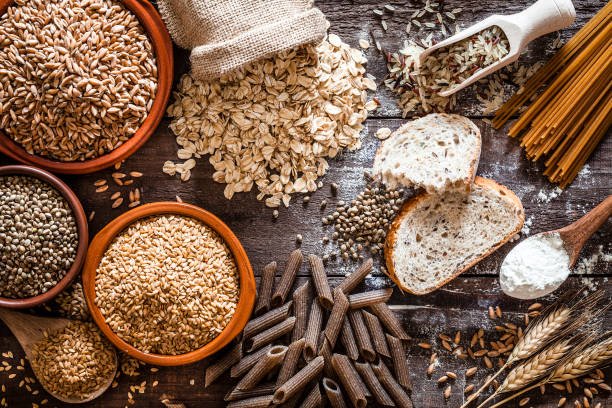
The inclusion of grains in dog food is a hotly debated issue, and there is no agreement among veterinarians as to whether dogs should consume them. Not all grains are made equal, and although some are excellent for dogs when given in moderation, others are better avoided.
Can Pugs Eat Grains?
Pugs can eat grains. Grains are an excellent source of nutrients for your Pug. They contain carbohydrates, fats, and antioxidants that meet their nutritional requirements. The grains in dog food can promote healthy immune systems, skin, and hair, among other things.
What Grains Can Pugs Eat?
Pugs can eat grains such as whole wheat, brown rice, barley, oats, millet, quinoa, sorghum, rye, corn, amaranth, and bread. You should avoid feeding your Pugs grains such as roughage because they contain toxins that are bad for them if ingested in large amounts.
Corn
Pugs can eat corn. Corn provides your Pug with fiber, protein, vitamins, and minerals. Linoleic acid and antioxidants are also abundant in it. However, you should only feed your dog a small amount of corn because it contains a lot of carbs.
Oatmeal
Pugs can eat oatmeal. The only caveat with oatmeal is that it should only be given on rare occasions. In addition to being rich in other nutrients like vitamins, minerals, and antioxidants, oatmeal is also high in fiber. Additionally, it includes linoleic acid, which promotes good skin on your dog.
Rice
Pugs eat rice. Rice is an excellent source of fiber, iron, thiamine, vitamin D, calcium, and riboflavin. Rice is also a common ingredient in most dog foods. However, you can also feed your Pugs brown rice, which is a healthier option than white rice.
Legumes
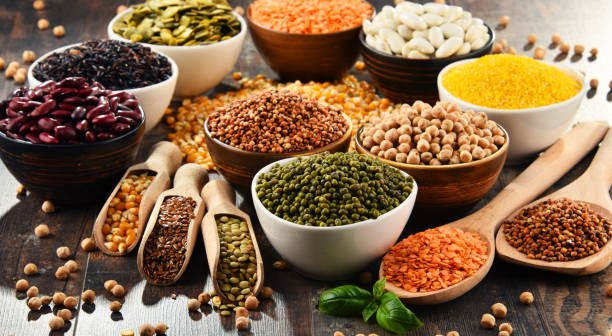
Legumes are a natural plant-based source of protein for your Pug. They provide a healthy source of essential nutrients like iron, magnesium, vitamin A, vitamin C, vitamin K, and antioxidants.
Can Pugs eat Legumes?
Pugs can eat legumes. Legumes are incredibly nutrient-dense foods that are loaded with fiber, protein, carbs, and other essential vitamins and minerals that your dog needs. When combined with other healthy components, they are a fantastic source of extra nutrients for your dog’s diet.
What Legumes Can Pugs Eat?
Pugs can eat legumes such as kidney bean, lima bean, navy bean, adzuki bean, fava bean, lentils, green pea, and many more. They shouldn’t eat raw beans due to their hardness on the digestive system, which can lead to inflammation, constipation, gas, dietary problems, and vomiting.
Lentils
Pugs can eat lentils. They contain nutrients like iron and folate, which are beneficial to your dog’s health in general. Lentils are ideal for helping your dog feel full for longer because they are also very low in fat and calories while being high in protein and fiber.
Peas
Pugs can eat peas. They are an excellent source of protein and dietary fiber and include the vitamins A, B, C, and K. They are also abundant in vital elements including manganese, thiamin, and folate. Green peas, whether they are fresh or frozen, have a sweet flavor and are a great treat for dogs.
Kidney Beans
Pugs can eat kidney beans. They are a great source of protein and fiber, as well as being packed full of vitamins, minerals, and antioxidants. However, you should only feed them cooked kidney beans because raw kidney beans contain phytohemagglutinin, a type of lectin or protein that is toxic.
Meat

The majority of your dog’s diet is made up of meat and proteins. Although dry dog food often covers these, most brands also include additives that some dogs may be sensitive to. It’s recommended to prepare any meat you give your pet flavor-free, even if certain animals may benefit from a “raw” diet.
Can Pugs Eat Meat?
Pugs can eat meat. However, a dog’s stomach isn’t as advanced as that of a human. While some meats are good for dogs, others are toxic for them. It’s on you, the pet owner, to be aware of the kind of meat you feed your dog to prevent health complications.
What Meat Can Pugs Eat?
Pugs can eat meat such as beef, bacon, bison, chicken, duck, elk, emu, fish, goat, ground beef, kangaroo, lamb, liver, llama, moose, ostrich, pork, quail, rabbit, turkey, venison, and yak.
Beef
Pugs can eat beef. Beef contains a high amount of quality proteins that are essential in a dog’s diet for their body to function optimally. Beef also contains vitamins, minerals, and essential fatty acids that provide your dog with tissue repair, healthy joints and muscles, and a healthy coat.
Chicken
Pugs can eat chicken. Chicken contains a high amount of protein that meets the nutritional requirements of Pugs, and it is also present in a lot of dog foods. Chicken contains omega-6 fatty acids that will provide healthy fur and glucosamine for healthy bones.
Eggs
Pug can eat eggs. They are completely safe, provide an excellent protein source, and are high in vitamins, minerals, amino acids, and fatty acids, all of which provide several nutritional advantages to your dog. Eggs are well-known for having the ideal nutritional balance.
Salmon
Pugs can eat salmon. Salmon is a great seafood option for dogs, is suitable, and is an excellent source of omega-3 fatty acids, which are important for maintaining the health of your dog’s skin and hair, boosting immunity, and lowering inflammation.
Tuna and Mackerel
Pugs can eat tuna and mackerel. They are an excellent source of omega-3 fatty acids, which support heart and eye health and keep your dog’s coat lustrous.
They also contain a variety of beneficial vitamins, minerals, and antioxidants, including vitamin D, vitamin B12, vitamin B6, iron, potassium, and magnesium.
Turkey
Pugs can eat turkey. Turkeys are high in protein, vitamins, and minerals, including thiamine and riboflavin. Minerals including zinc, magnesium, potassium, and phosphorus are also abundant in it. Selenium, another mineral found in Turkey, aids in regulating metabolism.
Shrimp
Pugs can eat shrimp as long as they’re cooked plainly. Shrimp is a nutritious treat for dogs since it is a great source of protein and contains a lot of vitamins and minerals.
However, you shouldn’t give your dog raw shrimp since it can contain dangerous bacteria that might make him ill. To prevent your Pug choking, always remove the shell from shrimp.
Pork
Pugs can eat pork as long as it’s cooked plainly without any sauce or seasoning. You should avoid giving your dog undercooked or raw pork, which might infect them with bacteria and make them ill. Furthermore, your dog should never be given processed pig products like ham and bacon. They frequently contain a lot of salt, which can be dangerous to dogs.
Nuts
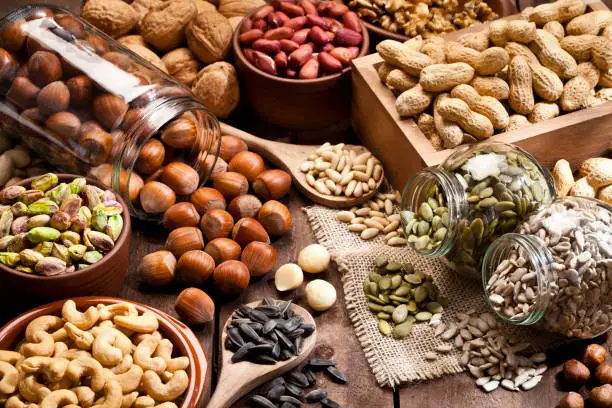
Although most nuts are harmful or even hazardous for dogs, they are a great supplement to a diet since they are abundant in plant-based proteins and lipids. Most Pugs do not regularly consume nuts, which might cause allergies or intolerances. It is advised to refrain from giving nuts to your pet.
Can Pugs Eat Nuts?
Pugs can eat nuts. But there’s a caveat. Nuts are high in fat and calories, which are toxic for your dog when ingested in large quantities. Excessively feeding nuts to your dog can lead to weight gain and pancreatitis. Nuts also contain coatings like cocoa, garlic, and pepper that are harmful to your dog.
What Nuts Can Pugs Eat?
Pugs can eat peanuts, pine nuts, Brazil nuts, American chestnuts, cashew nuts, flax seed, dill seed, sesame seed, pistachios, and hazelnuts. However, you shouldn’t feed your Pug almonds, macadamia nuts, pecans, flaxseed, black walnuts, and hemp.
Cashew Nuts
Pugs can eat cashew nuts. They contain healthy nutrients that are beneficial to the overall health of your dog. They have a low sugar content and are free of cholesterol. Cashew nuts shouldn’t be eaten in large quantities because they have a high fat content, which can lead to obesity.
Peanuts
Pugs can eat peanuts. Peanuts contain a lot of fiber, several vitamins, and healthy unsaturated fatty acids. However, you shouldn’t overfeed your dog with peanuts due to their high fat content, which may upset their stomach. They can cause obesity because they contain a lot of calories.
Vegetables
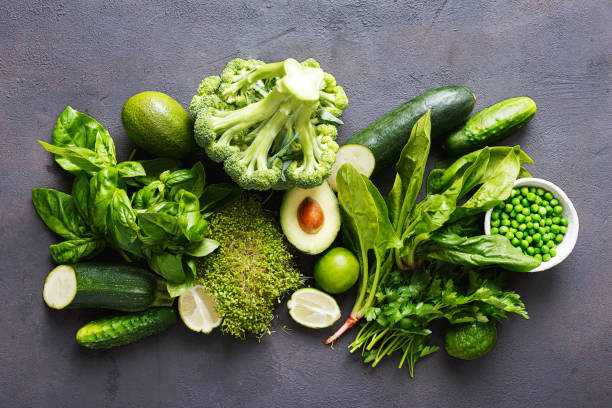
Pugs can consume both meat and vegetables since they are omnivores. Along with meat and grains, many commercial dog diets also contain fruits and vegetables. Additionally, all the nutrients a dog needs to be healthy are included in these products.
Can Pugs Eat Vegetables?
Pugs can eat vegetables. They contain nutrients that are missing from meat. Vegetables are full of phytonutrients, antioxidants, fiber, vitamins, and minerals that have the ability to combat illness. They also include digestive enzymes and are a great source of water because of their high water content.
What Vegetables Can Pugs Eat?
Pugs can eat vegetables such as artichokes, bell peppers, broccoli, Brussels sprouts, cabbage, carrots, cauliflower, celery, corn, collard green cucumbers, egg plants, green beans, kale, lettuce, peas, potatoes, pumpkin, spinach, radish, red pepper, tomatoes, okra, olives, zucchini, turnips, and others.
You shouldn’t feed your Pug vegetables such as asparagus, avocado, beet, chile pepper, chives, green onions, leeks, mixed salad, mushrooms, onions, parsnips, tomatoes, and turnips because they contain toxins that are harmful to your dog.
Bell Pepper
Pugs can safely eat all colors of bell pepper. They contain vitamins A, B6, C, and E that boost your dog’s immune system. They are low in calories, which would help your dog’s coat, skin, and eyes. They also contain 92% water, which would keep your dog hydrated during hot weather.
Broccoli
Pugs can eat broccoli. It is low in fat and high in fiber and vitamins C and K. It boosts your dog’s immune system, guards against heart disease, and supports strong bones and skin. However, you shouldn’t overfeed them on broccoli to prevent gastric irritation due to the isothiocyanate present in it.
Brussels Sprout
Pugs can eat Brussels sprouts. They contain fiber, nutrients, and antioxidants that are beneficial for dogs. They also include vitamin K, which supports healthy blood clotting, bone development, and heart protection. Brussels sprouts are best served when steamed or boiled.
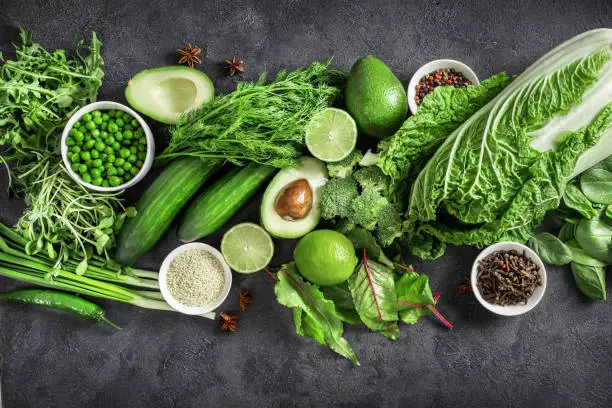
Cabbage
Pugs can eat cabbage. It contains nutrients like fiber and vitamins C and K that help fight diseases, boost your dog’s immune system, and aid digestion. You shouldn’t overfeed your dog with cabbage to prevent gas, and you should always cook them before giving them to your dog for easy digestion.
Carrots
Pugs can eat carrots. They are a nutritious snack choice that can be eaten raw or cooked. They are extremely nutrient-dense and packed with phytonutrients that have anti-inflammatory and antioxidant properties. They include fiber, potassium, calcium, iron, and the vitamins A, K, and C.
Cauliflower
Pugs can eat cauliflower. They contain calcium, potassium, vitamin K and C, folate, and soluble fiber that enhance your dog’s vision, blood, muscles, immune system, and general health. It can also reduce inflammation and help fight cancer. They can make your dog gassy when eaten excessively.
Celery
Pugs can eat celery. It contains fiber, folate, phosphorus, vitamins A, B, C, and K, manganese, and potassium that promote a healthy heart and even fight cancer. Due to its minimal fat and cholesterol content, celery is frequently suggested as a weight-loss treat.
Lettuce
Pugs can eat lettuce. It’s made up of 90% water and has low nutritional value. However, it contains calcium, iron, fiber, vitamin C, and beta-carotene, which can be converted into vitamin A. Lettuce is a good treat for overweight dogs and should be chopped up before giving it to your dog.
Potatoes
Pugs can eat potatoes. They contain iron, magnesium, potassium, and vitamins C and B6. You shouldn’t overfeed your dog with potatoes to prevent obesity due to their high carb content. You should also cook the potatoes and peel off the skin before feeding them to your dog
Sweet Potatoes
Pugs can eat sweet potatoes. They contain vitamins A, B6, and C that boost the immune system. They are high in dietary fiber, which also enhances digestion and lowers the risk of heart disease and certain cancers. Potatoes shouldn’t be given to an overweight dog to prevent health complications.
Miscellaneous

There are some human foods I’ll look into that don’t fall into the categories mentioned above.
What Other Human Foods Can Pugs Eat?
Pugs can eat allspice, allspice, baker’s yeast, basil, beet pulp, brewer’s yeast, carob, casein, coconut oil, coconut water, ethoxyquin, gelatin, ginger, honey, hops, kelp, mint, molasses, paprika, parsley, rosemary, sage, tapioca, and many more.
You can read 175 human foods dogs can eat to get a complete break down of the type of food to eat and how much human food you can feed them.
Noodles
Pugs can eat noodles. Noodles contain micronutrients such as manganese, vitamin B, folate, and iron despite being a food low in nutritional value. The caveat to feeding your dog noodles is that it should not be a regular part of their diet if they are not allergic to wheat or eggs.
Pasta
Pugs can eat pasta as long as it is prepared and served simply. Pasta, which used to be derided for being starchy and fatty, is now appreciated for being nutrient-rich and high in energy. Despite having a lot of carbs, whole-grain pasta is high in fiber and an excellent source of selenium and manganese.
What Other Human Food Can Pugs Not Eat?
Pugs can’t eat alcohol, anise, artificial sweeteners, black pepper, brown sugar, candy, chocolate, cinnamon, coffee, cooked bones, coriander, corn cobs, curry, distilled vinegar, fat trimmings, food coloring, food preservatives, ginger, garlic, gum, malt, moldy food, mustard, nutmeg, salt, soda, tobacco, tea, turmeric, vanilla, white pepper, white sugar, yeast culture, and many more.
Alcohol
Pugs should never be fed alcohol
A dog can become very intoxicated after consuming even a tiny quantity of alcohol, which might cause serious sickness. In addition to alcoholic drinks, dogs can become intoxicated by ethanol by ingesting medications, paint, antifreeze, perfume, sloe berries, undercooked bread, and antifreeze.
Call your veterinarian right away if you think your pet has ingested anything that contains alcohol.
Avocado
The persin toxin found in avocado leaves, fruit, seeds, and bark can upset a dog’s stomach. Although dogs should not consume avocado due to the vomiting and diarrhea symptoms the fruit can produce, other species, including horses, rabbits, and guinea pigs, are more at risk of catastrophic issues like heart damage and respiratory problems from eating avocado.
Chocolate
You should never feed chocolate to your Pug. Chocolate contains theobromine, a caffeine-like methylxanthine stimulant that can lead to health complications if eaten in large amounts.
You should always keep chocolate out of the reach of your dog, as the large cases of dog poisoning are a result of dogs consuming chocolate when nobody is around to monitor them.
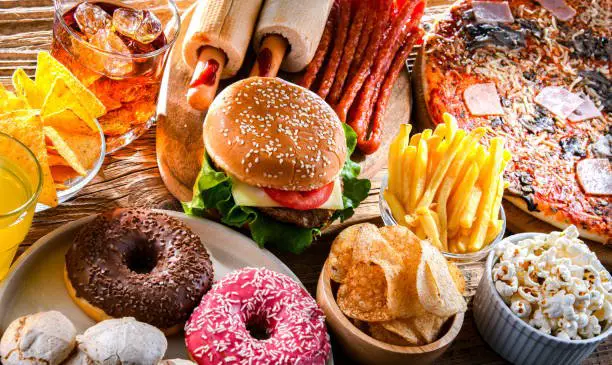
Grapes and Raisins
Even though raisins and grapes are healthy for humans, Pugs cannot tolerate them at all. These fruits are capable of causing permanent harm in even very small amounts. No matter whether the fruit is eaten raw or cooked, grapes and raisins are fatal to dogs and must always be kept out of their reach.
Macadamia Nuts
Pugs should never be fed macadamia nuts. Even a small intake of macadamia nuts can result in symptoms including sadness, tremors, weakness, and vomiting.
The typical onset and duration of symptoms are between 12 and 48 hours. In the event that you suspect your dog has eaten any macadamia nuts, you should immediately call your veterinarian.
Keep any baked items containing macadamia nuts out of your dog’s reach if you don’t want him to sample these nuts.
Onions
Onions and garlic, along with other plants of the Allium family, including shallots, leeks, and chives, can seriously harm dogs’ red blood cells, causing anemia and even death.
Depending on how much was consumed, the dog may not exhibit vomiting, diarrhea, stomach upset, depression, or loss of appetite right away. For assistance in keeping an eye on your dog’s health, if you think they may have taken onions, garlic, or other plants in the genus, call your veterinarian right away.
Consider a scenario in which you are unclear of the toxicity of the foods, plants, medications, and everyday objects your Pug may have unintentionally taken. In that event, professional assistance and guidance are offered 24 hours a day through the Pet Poison Helpline.
Alternately, call your veterinarian right away if you believe your dog has swallowed anything dangerous. In extreme cases of dog poisoning, timing might be the difference between life and death.
Other human foods you shouldn’t feed your Pug include caffeine (coffee, tea, etc.), cherries, cocoa, garlic, grapes, raisins, mushrooms, nutmeg, onions, shallots, leeks, and chives; rhubarb leaves; salt; star fruit; tomatoes (green); xylitol (sweetener); yeast dough; and black walnuts.
Final Thoughts on What Pugs Can Eat
There are many human foods your Pug can safely eat that are nutritious for them. However, they are dogs, not humans. You have to feed them these foods in moderation to prevent any health complications that may arise from eating large quantities of them.
Always consult your veterinarian or pet nutritionist before giving human food to your Pug with liver disease, kidney disease, diabetes, food sensitivities, weight issues, and other health concerns.
You should never feed your Pug food that contains alcohol, caffeine, chocolate, and xylitol, as they can lead to a host of health complications in your dog.
It’s best to keep this kind of food out of their reach and follow the safety guidelines outlined above when feeding them human food that is safe for your dog.
Finally, if your dog ate, or you suspect that your dog ate, any substance that is harmful to their system, contact your veterinarian or an animal control center right away.








